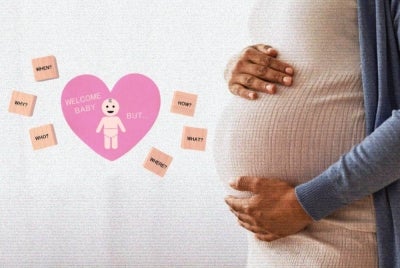‘Epidural use is not cheating’, experts defend women’s right to pain relief in childbirth
Opting for epidural is not about taking shortcuts; it’s a medically backed, evidence-based method that supports women in having a safer, more controlled, and empowering birth experience.

CALLING mothers who use an epidural during labour as “cheaters” is both unfair and illogical, after all, no one criticises patients for using anaesthesia during surgery.
Universiti Kebangsaan Malaysia (UKM) Hospital Canselor Tuanku Mukhriz, faculty of medicine, consultant obgyn, Prof Nur Azurah Abdul Ghani emphasised that childbirth is an intensely personal and physically demanding journey, and there’s no one-size-fits-all approach to pain management.
She stressed that opting for epidural is not about taking shortcuts; it’s a medically backed, evidence-based method that supports women in having a safer, more controlled, and empowering birth experience.
“Pain in labor can be overwhelming and unpredictable, and choosing to manage that pain with the help of modern medicine doesn’t diminish the strength or courage of the birthing person.
“It does not make you less of a mother if you choose epidural.
“In fact, for some women, effective pain relief through an epidural allows them to remain focused, calm, and engaged during labor, especially in longer or more complicated deliveries as it ensures a better outcome for both the baby and mother,” she said when contacted recently.
Azurah stated that viewing pain as a badge of honour is an outdated mindset — one that often leads to unnecessary guilt and shame. She believes it is time to change the narrative and eliminate these harmful ideas from birth culture entirely.
She said childbirth should not be about proving one’s toughness, but rather about ensuring the safe arrival of the baby and safeguarding the health and well-being of both mother and child.
Azurah emphasised that healthcare professionals should focus on empowering women with knowledge and choices, rather than imposing rigid ideals about how birth “should” happen.
“Every birth is valid and unique, and every woman deserves the right to choose the path that is safest and most comfortable for her,” she added.
DEFINITION OF EPIDURAL
Her comments came in response to a viral social media discussion in which some users labelled epidurals as a "cheat code" for mothers during childbirth.
For those unfamiliar, an epidural is a form of pain relief used during labour, where a small tube (called a catheter) is inserted into the lower back, specifically, into the space near the nerves that transmit pain signals from the uterus and birth canal to the brain.
Azurah noted that it takes a great deal of courage to consent to the procedure, as not everyone is comfortable with the idea of a tube being inserted into their spine.
Once the catheter is in place, a numbing medication — typically a local anaesthetic — is slowly administered through it.
“This medicine blocks only pain signals. You may still feel pressure, tightening from contractions and move your legs but you won’t feel the sharp pain that often comes with contractions.
“Epidural during labour does not complete numb your lower body as if you cannot feel anything. You can still feel the pressure and tightening,” she said.
She explained that one of the benefits of having an epidural during labour is that it doesn’t put to sleep as the mother remains fully awake, more relaxed, and able to actively participate in the birth experience.
EPIDURAL IS A PERSONAL CHOICE, BUT CAN BE CRUCIAL IN CERTAIN SITUATIONS
Azurah pointed out that having an epidural during labour is entirely optional. Some women may choose it early on, others may prefer to wait, and some may decide not to use it at all.
However, in certain situations, it can be particularly helpful and sometimes even medically recommended.
She noted that epidurals can be beneficial for women expecting a long and painful labour, those who need pain management, women with high blood pressure (since contractions can dangerously elevate it), those carrying twins, or those anticipating a complicated vaginal delivery.
In cases where an epidural is already in place and an emergency caesarean section becomes necessary, it can be used immediately for surgery. In such cases, the anaesthetist simply needs to increase the dosage to provide full numbness for the procedure.
“For most people, epidurals are very safe,” she said, adding that serious complications, such as headaches, are rare.
Azurah emphasised that an epidural not only helps manage physical pain but also provides significant mental relief during labour.
However, she advised that, like any medical procedure, it’s important to understand the potential risks and benefits, something a doctor can help explain thoroughly.
Download Sinar Daily application.Click Here!















